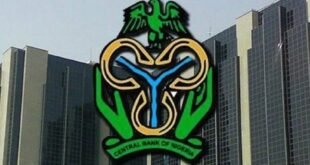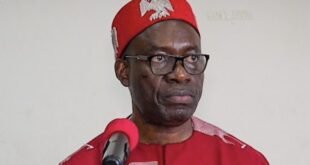Angola has expressed interest in improving trading with Nigeria, saying that it would continue to push for improvement of bilateral relations.
Amb. José Bamóquina Zau, Ambassador Extraordinary and Plenipotentiary of Angola to Nigeria, Benin, and Niger, said this at the 48th independence anniversary ceremony of the country on Friday night in Abuja.
He said the 48 years of independence of Angola represented the sacrifices made by Angolan people and the government’s determination to implement the main objective of the country.
Zau added that Angola and Nigeria are brother countries and giant crude oil producers in Africa and have been in a relationship that started since Angola’s liberation struggle began until its independence.
He said: “Angola and Nigeria faced challenges and their respective leaders remain committed to resolving most essential problems and strengthening bilateral cooperation are core plans of Presidents Joao Lourenco and Bola Tinubu.
“Since 2008, Angola-Nigeria Bilateral Joint Commission has awaited a roundtable with the officials of the two countries to work on socioeconomic, political, defense and internal security issues.
“The commission also awaits to consolidate the bilateral legal instruments needed, in view of the dynamic that is to be created between the two brotherly countries.
“The Angola-Nigeria economic balance still does not reflect the strategic dimension of the two giants.
“The African Free Trade Zone is coming, so it is in everyone’s interest to prioritise trade cooperation and reverse the current situation in the short and medium term.”
The envoy while acknowledging the partnership between Angola and Nigeria within the framework of Technical and Methodological Coordination of African Petroleum Producing Organization (APPO), which extended to the Organisation of the Petroleum Exporting Countries (OPEC), noted that the Gulf of Guinea Commission as one of the outcomes of the sub-regional organisation’s coordinated actions aimed at gaining momentum, amidst the current challenges in the area.
He said: “In this regard, the leaderships of the two countries have always taken the lead in fulfilling principles defended by the founding fathers of the OAU.
“It is where we highlight the intangibility of the borders of our colonial heritage, freedom for oppressed people, and freedom of religion, and above all raising the great challenge of lifting millions of Africans out of poverty.
“The UN organisation is another forum where leaders of the two countries expressed desire for an increasingly fair world with re-founding of multilateral institutions on a global scale.@
The Ambassador said that the Angola/Nigeria Chamber of Commerce and Industry was established in Luanda to ensure the needs of the business community in both countries are properly understood and supported.
The envoy stated that the embassy on Oct. 19 hosted its maiden Diplomatic Business Forum that brought together political and business stalwarts from Angola and Nigeria.
He noted that at the forum, were captains of industry such as the oil and gas sector, banking, agribusiness, aeronautics, and mining, among other areas of interest to both countries.
He revealed that it was the mutually coordinated actions of both countries that resulted in the establishment of the Angola-Nigeria Business Council (ANBC).
He described the event as a preparation for the proposed “Road Show Angola,” an exhibition fair designed to boost business opportunities in Angola.
He revealed that: “As part of the implementation of the African Continental Free Trade Area, structural reforms have been made in various sectors: Legislative, Migration, Banking and agriculture.
“We can highlight here the ease of the mobility of Nigerian business people and not only to Angola with the granting of entry visas at a very short time, contrary to the previous period.
“This is always in the context of human mobility on a global scale, a total of 98 countries in the world were exempted from entry visas to Angola with immediate effect.”
He however observed that: “This process of removing some barriers to movement of people is carried out gradually with the inclusion of more countries whenever technical and material conditions are created for such purpose.”
 JamzNG Latest News, Gist, Entertainment in Nigeria
JamzNG Latest News, Gist, Entertainment in Nigeria










